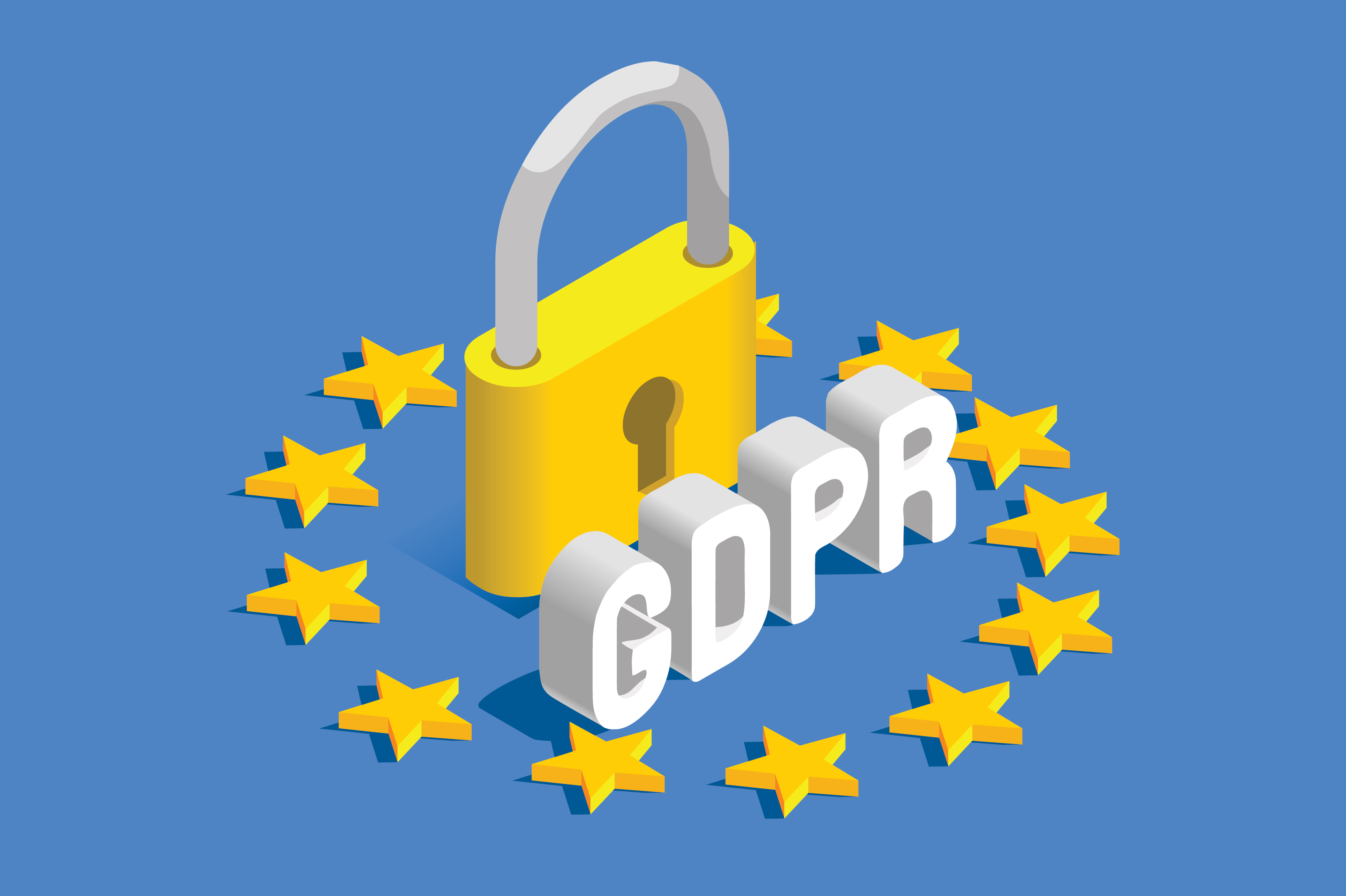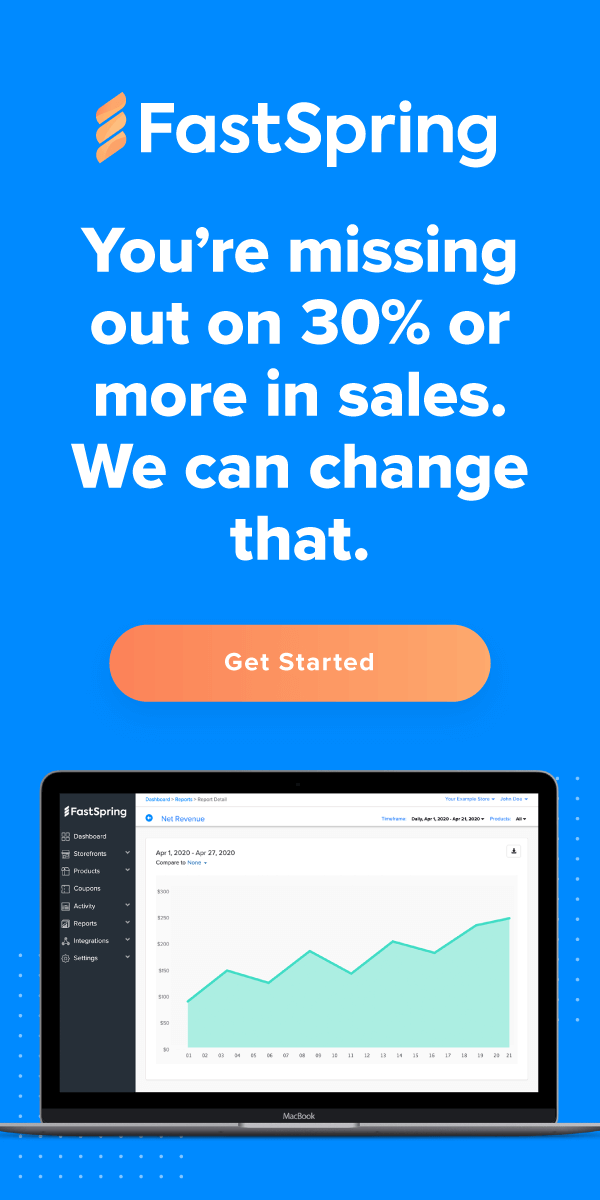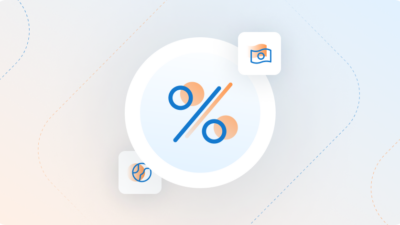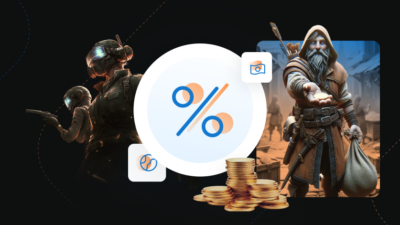The impending General Data Protection Regulation (GDPR) deadline is a hot topic on everyone’s mind these days. However, these regulations are a small step forward in the data privacy movement.
The way consumers think about their personal data is changing, and businesses are being held accountable for keeping up with the emerging trends and regulation.
In this piece, we are exploring how far the management of personal data has come, where it’s heading, and how FastSpring will be there every step of the way.
Consumers are speaking up about data privacy.
Before consumers had the chance to understand what the online ecosystem had become, we were willingly feeding massive amounts of personal data to businesses around the world. The amount of data a single company can have on an individual is shocking.
For example, one Tinder user was surprised to learn that the dating app had over 800 pages of personal information about them after requesting access to their personal data via the EU data protection law.
Shocking as this may be, it turns out most Tinder users are volunteering to disclose information without realizing it. And this problem is not specific to a single dating app. It’s a common problem for every digital business that requests personal data from its users.
Privacy activists like the team at personaldata.io have emerged to actively work with consumers to educate them on the current data privacy regulations and help them control the personal information that is held by businesses.
The increased attention on the amount of data digital businesses are collecting from consumers has changed the way individual companies are dealing with data privacy. Past regulations like the 1995 Data Protection Directive(Directive 95/46/EC) have guided digital businesses to update the way they manage and protect personal data for their users.
Looking towards the future of data privacy.
New forms of technology and ways for consumers to connect in a global society have influenced the way businesses approach data privacy.
Past regulations like the 1995 Data Protection Directive (Directive 95/46/EC) have guided digital businesses to update the way they manage and protect personal data for their users. And the GDPR is set to replace the DPD in order to keep up with new privacy concerns and emerging technologies.
Technologies like blockchain will transform the way we manage economic transaction record keeping. Deduplication will eliminate duplicate copies of repeating data from being stored. And distributed remote office data backups will change the way data is centralized and managed for businesses with multiple remote offices.
The possibilities are endless for the future of data privacy management. And the increasingly educated consumer will push digital businesses to follow new regulations to keep up with these sophisticated technologies.
So, what is the general data protection regulation?
The EU General Data Protection Regulation is a set of policies that protect and empower all European Union residents to protect their personal data online and regulate the way businesses in the region approach data privacy protection.
All personal data of EU residents is protected by the GDPR. This protection covers personal information like email addresses, IP addresses, home addresses, dates of birth, online financial information, and more. To sum it up—the GDPR protects all personal data across any online platform.
If your company is located in the European Union or conducts business with any EU residents, you are required to comply with the upcoming GDPR. The deadline will be here in no time, but as of April 13th, 22% of executives haven’t started the process for GDPR compliance. See where your business fits in the chart from Statista.

Think of this set of regulations as a test. Businesses who manage data from EU residents will have to be GDPR compliant by the deadline or face stiff fines. After some experimentation with this set of guidelines, the regulation will continue to shift.
FastSpring is there every step of the way.
FastSpring’s ecommerce platform will be GDPR compliant by the May 25th deadline. However, we also want to point out that we take data privacy very seriously. Even before the GDPR, we complied with the highest privacy standards and regulations from around the world. You can check out the details in our Privacy Policy. Data privacy will continue to be a priority as domestic and international regulations to evolve. We look forward to supporting our amazing customers and their buyers. For updates and more information around GDPR, please visit fastspring.com/gdpr.
![[Customer Story] Why TestDome Considers FastSpring a Real Partner](https://fastspring.com/wp-content/themes/fastspring-bamboo/images/promotional/2023/FastSpring-TestDome-blog-thumbnail.jpg)








